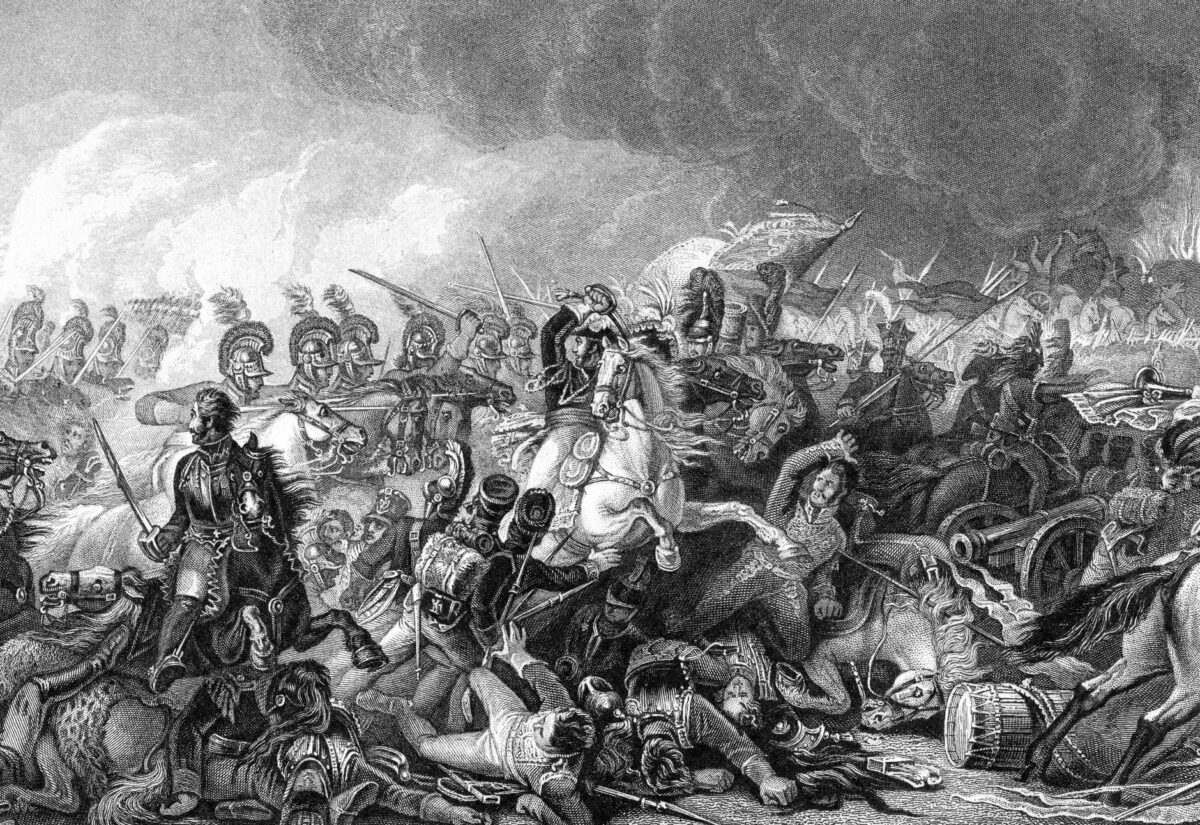 Getty Images/iStockphoto
Getty Images/iStockphotoHistory tends to portray famous rivals as polar opposites locked in eternal opposition. But even bitter enemies have, at times, expressed grudging respect—or even quiet admiration—for each other’s brilliance, courage, or vision. Whether it was battlefield skill, political cunning, or sheer force of personality, some foes found themselves compelled to acknowledge the very qualities they were fighting against. Here are historical enemies who, despite their conflicts, secretly admired one another.
Julius Caesar and Vercingetorix
Julius Caesar and Vercingetorix were fierce adversaries during the Gallic Wars. Vercingetorix, a chieftain of the Arverni tribe, united various Gallic factions to resist Roman domination. Despite being outmatched in resources, he proved a formidable strategist, famously holding off Caesar’s legions at the siege of Gergovia.
Though Caesar ultimately defeated Vercingetorix at Alesia in 52 BCE, he respected his opponent enough to spare his life—temporarily. He brought Vercingetorix back to Rome, parading him in triumph before having him executed. While brutal, Caesar’s decision to feature Vercingetorix in this way signalled deep respect for the man who had nearly outwitted him.
Napoleon Bonaparte and the Duke of Wellington
Napoleon and Wellington met only once—on the battlefield at Waterloo—but their reputations were deeply entwined. Wellington, known for his precise and cautious tactics, was the antithesis of Napoleon’s bold, sweeping movements.
After Napoleon’s defeat, Wellington praised him as a military genius, admitting, “his presence on the field made the difference of forty thousand men.” Napoleon, in turn, reportedly respected Wellington’s command and personal integrity, even if he saw him as cold. Their rivalry became symbolic of two military schools—but the admiration ran both ways.
Ulysses S. Grant and Robert E. Lee
During the American Civil War, Union general Ulysses S. Grant and Confederate general Robert E. Lee led opposing armies in some of the bloodiest battles of the conflict. Yet, when Lee surrendered at Appomattox in 1865, Grant treated him with exceptional courtesy.
He allowed Confederate officers to keep their sidearms and horses, a gesture of honour rather than humiliation. Lee later spoke respectfully of Grant, and Grant, in his memoirs, praised Lee’s dignity and skill. Their relationship at the end of the war became a symbol of reconciliation.
Winston Churchill and Mahatma Gandhi
Churchill and Gandhi were ideological enemies—one a staunch imperialist, the other the face of anti-colonial resistance. Churchill famously opposed Indian independence and referred to Gandhi in deeply disparaging terms.
Yet later in life, Churchill reportedly acknowledged Gandhi’s moral strength, calling him a “great man” in private. Gandhi, for his part, said he admired Churchill’s oratory and resolve, even while opposing his policies. Their antagonism was shaped by vastly different visions for the world—but it wasn’t entirely devoid of personal respect.
Saladin and Richard the Lionheart
During the Third Crusade, Richard the Lionheart of England and Saladin, the sultan of Egypt and Syria, clashed repeatedly. Despite the bloodshed, both leaders developed a mutual respect. Saladin reportedly sent his personal physician to care for Richard when he fell ill and returned a captured horse to him after a battle.
Richard praised Saladin’s honour and chivalry, and though they never met in person, their interactions became the stuff of legend. Their rivalry was fierce—but marked by a code of respect that stood out in the chaos of the Crusades.
Frederick the Great and Maria Theresa
As rulers of Prussia and Austria, respectively, Frederick and Maria Theresa were involved in a series of brutal wars for dominance in Central Europe. They fought over Silesia and other territories for decades.
Yet Frederick, known for his sharp tongue, praised Maria Theresa’s political skill and resilience. He once wrote that she was the only man among the rulers of her day—a backhanded compliment, but a compliment nonetheless. Despite their wars, he saw in her a worthy rival.
Abraham Lincoln and Stephen Douglas
Abraham Lincoln and Stephen Douglas were bitter political opponents, clashing over slavery and the direction of the United States in a series of famous debates. Douglas defeated Lincoln in the Illinois Senate race of 1858, but the two faced off again in the presidential election of 1860.
Despite their differences, Lincoln respected Douglas’s debating skills and political tenacity. Douglas, after losing the presidency, supported the Union cause and even held Lincoln’s wife’s hand at his inauguration. Their rivalry helped define American politics—but it was grounded in mutual recognition.
Erwin Rommel and Bernard Montgomery
In North Africa during World War II, German general Erwin Rommel and British Field Marshal Bernard Montgomery fought a high-stakes desert campaign. Rommel, known as the “Desert Fox,” earned Montgomery’s respect for his tactical brilliance and command style.
Montgomery referred to Rommel as a worthy adversary, while Rommel reportedly spoke highly of Montgomery’s discipline and ability to rally troops. Rommel’s eventual disillusionment with Hitler and involvement in a plot to overthrow him further complicated the narrative of friend and foe.
Thomas Jefferson and John Adams
Jefferson and Adams were allies turned enemies turned allies again. After working together on American independence, they became bitter political opponents—Jefferson defeating Adams in a contentious presidential race.
But later in life, they resumed correspondence, writing letters that spanned topics from politics to philosophy. Their respect for one another’s intellect remained, and both died on the same day—4 July 1826—50 years after the Declaration of Independence. Their rivalry ended in mutual admiration.
Alexander the Great and Darius III
Alexander the Great’s campaign against the Persian Empire brought him face-to-face with Darius III, whom he defeated in a series of decisive battles. Darius fled but continued to send peace offers and requests for negotiation.
Alexander, after defeating Darius’s forces for the final time, was reportedly furious when Darius was murdered by his own men. He ordered Darius buried with full honours and treated his family with great respect. Though conqueror and conquered, Alexander saw Darius as a worthy monarch brought down by treachery rather than failure.



